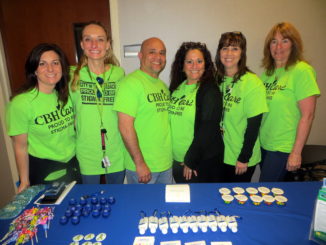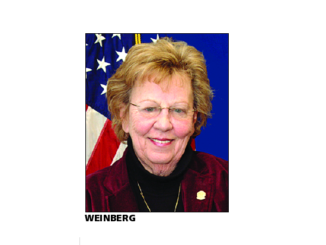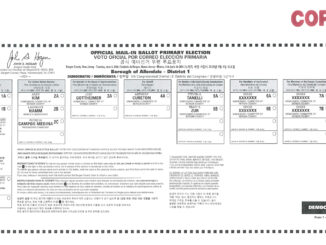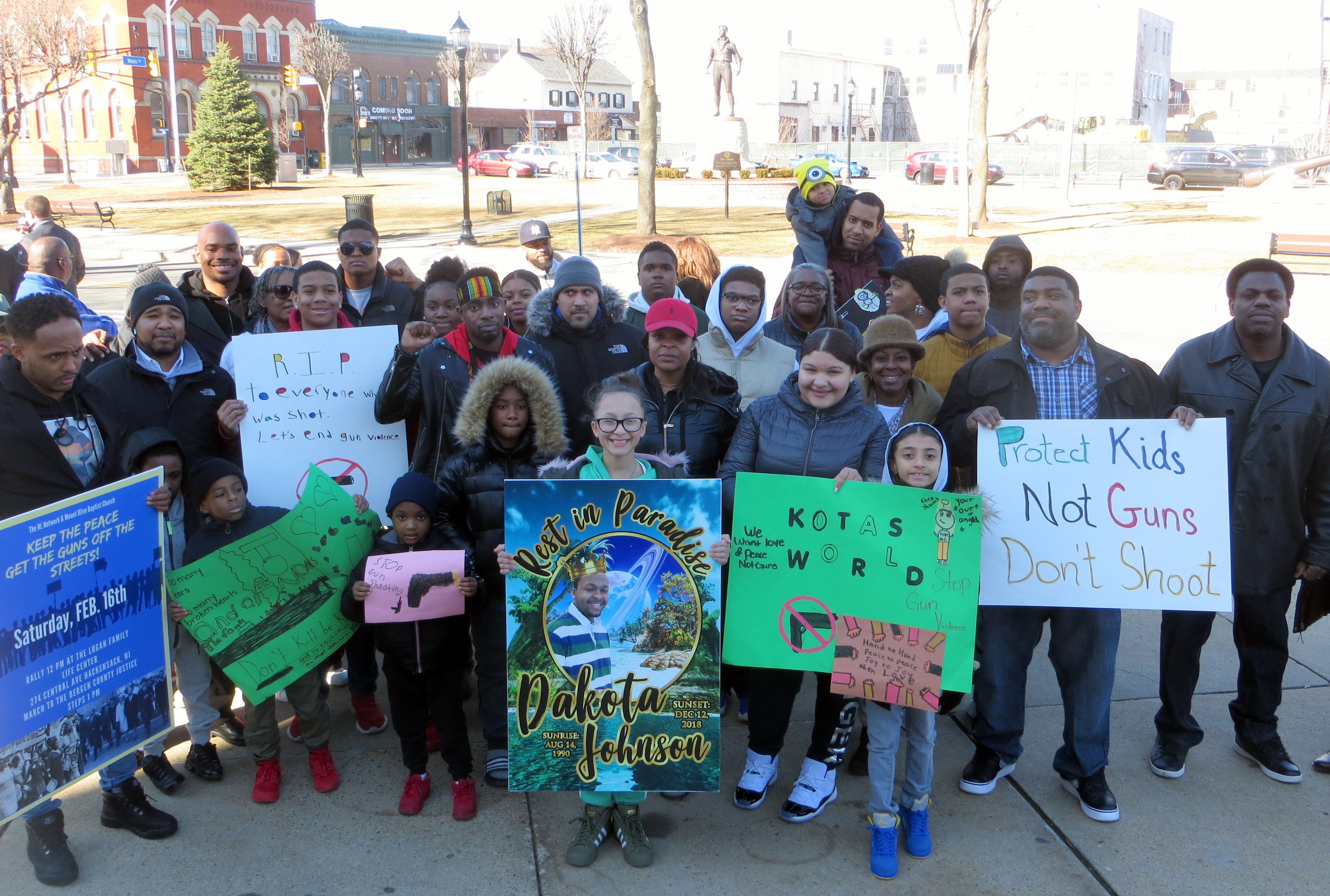
BY HILLARY VIDERS
OF NORTHERN VALLEY PRESS
HACKENSACK, N.J.—Their signs read, “Too Many Tears, Too Many Broken Hearts,” and “Protect Kids, Not Guns. Don’t Shoot!” but it was their faces that told the real story.
On Feb. 16, several hundred peaceful protesters gathered at the Logan Family Center at Mount Olive Baptist Church in Hackensack. The event was organized by Ryan Cobb and Lindsay James, director of the Real Life Network.
The peaceful protest, billed as “Keep the Peace, Get the Guns off the Streets,” was inspired by the recent shooting death of Dakota Johnson, a 28-year-old African American father of two, that occurred the night of Dec. 12, 2018 after a bar confrontation in Bogota.
According to the police report, Johnson was killed by a single gunshot wound to the chest after friends said he came to another’s rescue following an argument that began at Buddy’s Place on Fort Lee Road and spilled outside around 1:45 a.m. Police charged Englewood resident Talek Lawson with the murder, arresting him the next day.
“The purpose of this rally is to enlighten and educate the community about the detrimental effects of gun violence in America and to mobilize our youth,” explained Cobb.
Rally members made signs that announced their mission to call attention to the horrific number of shooting deaths of African American citizens in America and specific tragedies in their community. Their concern is backed by the facts.
Recent data from the Centers for Disease Control and Prevention show that in the U.S. every day, 90 deaths and 200 injuries are caused by gun violence. Of all firearm homicides in the world, 82 percent occurs in the United States.
CDC data also show that within our nation’s cities, black Americans are, on average, eight times more likely to be killed by firearms than those who are white. The rate of death by gun homicide for black people exceeds those among white people in all 50 states.
To put it into perspective, a black person living in an urban area is almost 500 times more likely to be killed by everyday gun violence than by terrorism.
“With a community left grieving, something had to be done to start the necessary conversation on how to make our neighborhood a safer one,” James said. “Dakota Johnson is not the only name that can be called out in the last 10 years and we should not have to wait another 10 years for the end to gun violence.”
Before the rally, Cobb told this journalist, “Most people have said the only time black people rally is when it’s a white officer or someone of another race shooting someone. We never stand up when it is black on black, and it’s time to do that. It’s time to stand up and make a difference.”
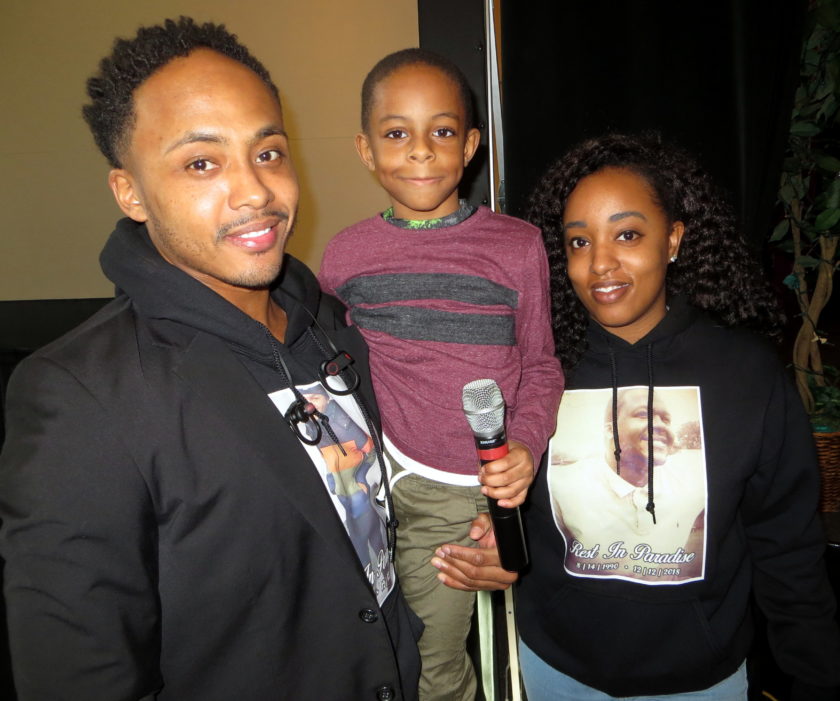
And, on Feb. 16, they did indeed stand up. By noon the church’s Logan Family Center was filled to capacity. The audience heard words of encouragement and enlightenment from Rev. Gregory J. Jackson, pastor of Mount Olive Baptist Church; lifelong community activist Estina Baker; Rev. Donna West; and members of Dakota’s family, including his mother, Carol Johnson, and his cousin, Randy Baker.
Even the young people had passionate views on gun violence. They made signs and wore T-shirts bearing Dakota Johnson’s photo. Seventeen-year-old Camilia Mala from Teaneck said, “It is very important for us to know what is happening in society today. We are going to be adults in a couple of years and we are the ones who have the power right now. What we do will affect us for years to come.”
As the program began, Rev. Jackson, who has been Mount Olive Baptist Church’s spiritual leader for 35 years, offered a solemn prayer and gazed around the room.
“I wish we were not here. I wish we would did not have to be here,” he declared.
He was followed by Baker, a democratic strategist and community activist who works on gun legislation at the national level.
“I’ve been a member of this church for many years. I was one of the children’s Sunday school teachers and I raised my own children here. My daughter went to school with Dakota. She was so upset because he had turned his life around and was on a very positive trajectory, so it’s very tragic.
“I have seen gun violence up close,” she continued. “I saw an 18-month-old baby accidentally shot in a drive-by shooting. When I attended the funeral, I had never seen such a tiny casket.”
When asked why gun legislation is currently stalled in the national arena, Baker said, “It’s because lobbyists are more important to some of our elected officials. But the NRA is in a bit of financial trouble right now. The way we overcome this complicity between lobbyists and people in office is we vote those people out.
“But understand,” she emphasized, “I am not against guns. I come from Texas where hunting is a very popular sport. In fact, many of my family members have gun racks in their trucks. But, there is no need for a civilian to have an AR-15. You can’t even hunt with that gun, because it blows everything apart. There is a certain barbarism that comes with that. Guns should not be available to people who have been documented as mentally unstable or who have been convicted of domestic violence. But they can buy guns and they do.”
Speaking to this journalist, Baker said, “You and I can get into my car right now and drive to Pennsylvania and buy guns at dozens of gun shows right along the side of some roads without a background check. I don’t have to do anything except show some form of ID.”
When James came to the microphone, she said, “Gun violence has no name, no age preference, no race, no gender preference. We need to get young people involved in this conversation about staying safe, because they worry about going to school every day and going to the mall.”
Cobb posed a question to the audience: “By a show of hands, how many of you know of someone who was affected by gun violence?”
Almost every hand went up.
“How many of them were black?”
Almost every hand stayed in the air.
When Rev. Rose came to the podium there was a hushed silence. With tears in her eyes, she asked everyone to stand and hold hands while she delivered an invocation that resounded with splintering heartbreak.
After hearing speeches by community leaders, the crowd marched a mile and a half from the church on Central Avenue to the Bergen County Courthouse on State Street, where the Bergen County Sheriff’s Office co-sponsored the rally under the leadership of County Sheriff Anthony Cureton.
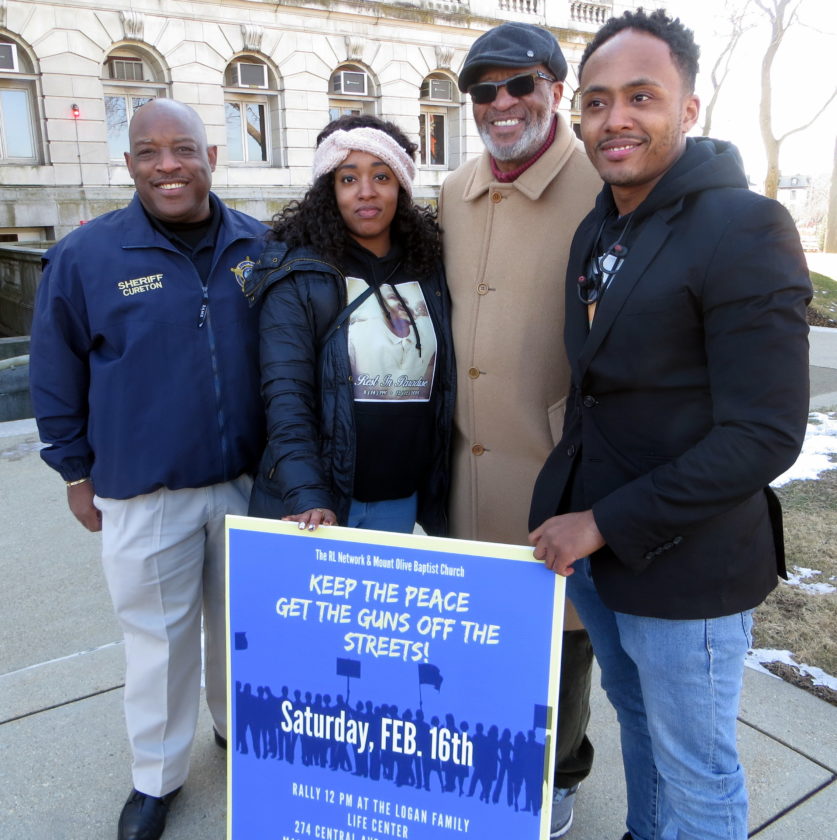
When the group arrived, Cobb thanked the over 100 protesters who had assembled.
“This event is important because the national gun violence problem spills over into smaller communities like ours,” he said, “and young people need to understand that there are detrimental effects when you resort to gun violence against another black person.”
At the forefront of the group were several members of Johnson’s family, including his 5-year-old son, Elias, and his 9-year-old daughter, Aiyana.
Cureton spoke briefly but effectively, relating personal incidents of black shooting victims.
“The bullet does not discriminate. White, black, gay, whatever it may be, the bullet kills. One bullet can take a life away. One bullet can destroy a family. One bullet can destroy a culture. The only way we are going to get things together is to get together. So when you leave here today, talk to people about this. What you say can effect a change.”
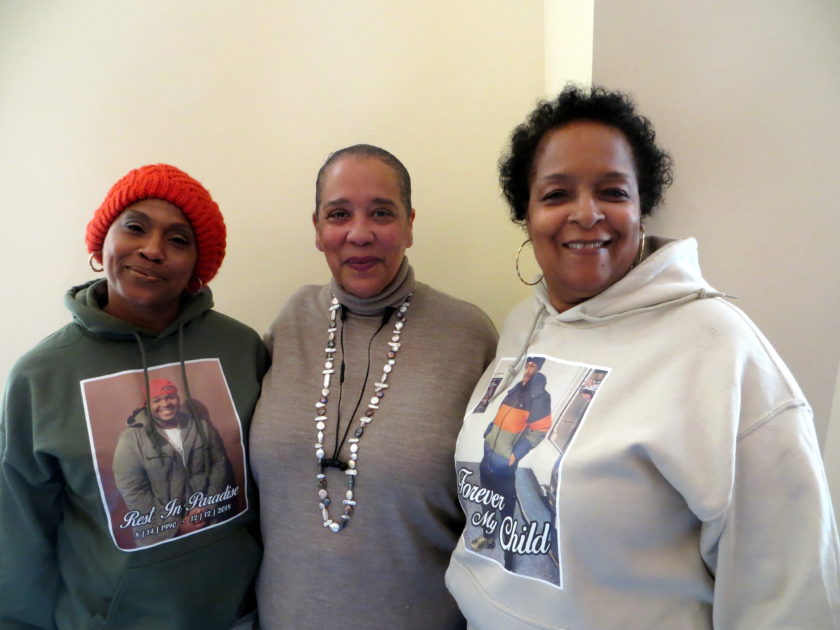
As the rally ended and the crowd dispersed, there remained in the air the dramatic words that had been spoken in the church by Baker: “This is not a moment. We’ve had too many moments! Our souls are demanding a movement, and you are very much a part of that movement.”
Baker also recalled this sentiment by Martin Luther King Jr.: “We will not remember the words of our enemies, but we will remember the silence of our friends.”

